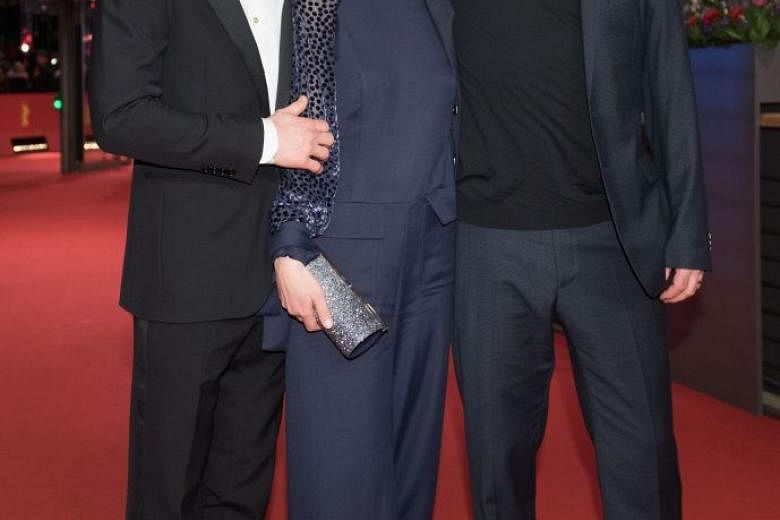BERLIN •Two years ago, Chinese artist Ai Weiwei covered the facade of the German city's concert hall with 14,000 life jackets from refugees during the Berlin Film Festival.
This year, he has set out to create more waves about the plight of refugees and asylum-seekers by showcasing his first feature-length film. Human Flow is a documentary visiting more than 40 refugee camps in 23 countries. He is not alone.
Migration, an issue that has vexed Germany since its 2015 refugee crisis, has proven fertile ground for other directors at the festival, where they present movies looking at refugees' stories of escape, arrival and integration.
This year's Berlinale - the 68th edition of the event set up in 1951 to showcase films addressing social and political issues - shows refugees' experiences in at least eight entries, from documentaries to an adaptation of a 1940s novel.
Film-makers said they wanted to send a political message and show how migration was changing Europe.
"It's much more that you now look at what refugees are doing after they arrived in Europe. What is their future?" said Mr Dieter Kosslick, the festival's director.
Eldorado, by Swiss director Markus Imhoof, follows migrants rescued from near the Libyan coast and taken to Italy where they could either wait in shelters and sometimes end up being deported or leave the camps to work illegally and risk being exploited.
In the film, Imhoof also tells a personal story of his family taking in an Italian girl after World War II and having to give her up.
Another documentary, Central Airport THF, shows the lives of those who stay and wait in asylum shelters through a 15-month blog of a Syrian refugee living in Berlin's Tempelhof airport.
"The most important question, politically speaking, to Europe now is how can Europe be a diverse continent. It is really great that there are films that are dealing with that," said Brazilian director Karim Ainouz.
Elsewhere, via a plot set in contemporary France that has Germans escaping troops that are occupying Marseilles, Transit adapts a novel by Jewish author Anna Seghers telling her own escape story from Nazi Germany in 1940.
The film, which is one of 19 competing for the festival's Golden Bear award, details the desperate journey of refugees trying to secure visas and official papers in a bid to escape persecution.
German director Christian Petzold said he wanted to send a political message concerning the idea of asylum law in the German constitution.
In Styx, another life-changing journey unfolds. A female sailor faces a dilemma when she sees an overcrowded boat carrying refugees, some of whom jump off as it starts to sink. The coastguard tells her not to assist, assuring her that help is on the way, but the hours pass.
When a young boy starts swimming towards her, she steers her boat towards him, takes him on board and nurses him. That embrace of humanity in its hour of need is exactly what Styx's director Wolfgang Fisher hopes for.
REUTERS

